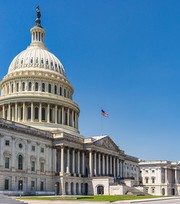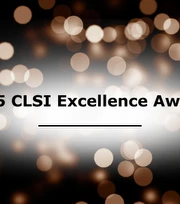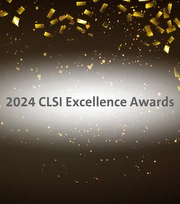You'll receive the latest updates on new standards, guidelines, and educational resources, as well as expert insights to help enhance your laboratory's performance and compliance.
News
Catch up on the latest news and updates from CLSI.
View All News Posts
Filters
{{ sortLabels[option] }}
July 8, 2025
A letter to Secretary Kennedy on behalf of of the undersigned organizations representing the nation’s clinical and public health laboratories.
CLSI News
June 17, 2025
Clinical and Laboratory Standards Institute is thrilled to celebrate CLSI Board President Dr. James Nichols, for his recognition as recipient of the 2025 IFCC Award for Distinguished Contributions in Education.
CLSI News
May 28, 2025
CLSI has partnered with the LymeX Diagnostics Prize to support Phase 4 teams advancing Lyme disease diagnostics. Teams will implement their clinical validation plans and complete regulatory submissions to the FDA to accelerate the development of Lyme disease diagnostics.
CLSI News
January 1, 2025
The Clinical and Laboratory Standards Institute (CLSI) is pleased to welcome Zahra Shajani-Yi, PhD, DABCC, FADLM to the CLSI Board of Directors.
CLSI News
January 1, 2025
The Clinical and Laboratory Standards Institute (CLSI) is pleased to announce the recipients of the 2025 CLSI Excellence Awards.
CLSI News
December 12, 2024
The Clinical and Laboratory Standards Institute (CLSI) announced today the formation of a new Laboratory-Developed Test (LDT) Final Rule Advisory Group. The group, comprising 15 respected subject matter experts in laboratory medicine and regulatory policy, is scheduled to convene for the first time in mid-December 2024
LDTs
CLSI News
October 31, 2024
CLSI shares standards guidance to support teams competing for innovation prize for the development of new point-of-care lead detection tests.
Method Evaluation
CLSI News
September 30, 2024
CLSI and bioMérieux launch a Global Symposium in Tokyo to advance antimicrobial susceptibility testing (AST).
Antimicrobial Susceptibility Testing
CLSI News
January 23, 2024
The Clinical and Laboratory Standards Institute (CLSI) is pleased to announce the recipients of its 2024 Excellence Awards. The Excellence Awards recognize the achievements of CLSI volunteers and organizational members who are committed to CLSI’s mission and have helped improve the quality of medical care worldwide. Recipients are recognized for dedicating significant time and effort to the development, implementation, and promotion of CLSI standards.
CLSI News
January 22, 2024
In 1972, CLSI, formerly known as the National Committee for Clinical Laboratory Standards (NCCLS), published “Table 1” in one of the earliest NCCLS AST documents. Table 1 was intended to help clinical laboratories decide which antimicrobial agents to test and report on specific bacteria. New drugs and new comments were added to the Tables 1 over the ensuing decades, but the format for these tables did not change.
Antimicrobial Susceptibility Testing
No Results
No results were returned for that query.









